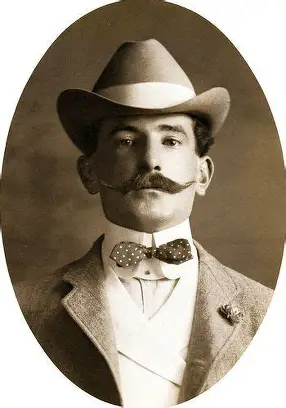
How I Made My Fortune, subtitled A SEEKERS FOR TRUTH Origin Story, is an exuberant, old-fashioned coming-of-age tale set in the fictitious port city of St. Bart’s Bay in 1911. Written by Paul Steven Stone with a literary wink and a keen ear for character, the novel follows the adventures of 17-year-old David Lucius Rockwood, a boy with a boundless moral compass, relentless energy, and dreams far wider than his visible horizons.
From the novel’s opening sentence, we learn that David Rockwood was born to move. That every step he takes in the course of a day is set to a beat and rhythm that courses through body and mind (and perhaps soul) to propel his movement ever onward toward escaping the confines of his family’s financial struggles and—as a young man of character and enterprise—making his “fortune.”
With a body so athletic it transforms the streets of 1911 St. Bart’s Bay into his own personal gym, and a Conscience so huge and overwhelming it can only be talked about using a capital “C,” David Rockwood attempts to navigate and rise above the challenges of a boy growing into manhood at a time when America is teeming with industry, adventure and, most of all, untapped potential.
This is the America of bootstrap believers like Theodore Roosevelt and Horatio Alger, where an enterprising boy of 17 can seek out his fortune to become ‘The Man In The Arena.’
How I Made My Fortune is the story of one such young man, but also the tale, told with humor, charm and narrative invention, of two larger-than-life characters who touch and redirect the young man’s life, one an engaging con artist, and the other a Russian born mystic (modeled on legendary mystic G.I. Gurdjieff) whose Institute For Harmonious Developments is the outer shell for a school of self-development—The Seekers For Truth—whose sole purpose is the transformation and advancement of humankind.
It is the intersection of these competing interests and driving forces as they play out in the life of David Rockwood, who sees himself as the embodiment of Theodore Roosevelt’s ‘Man In The Arena,’ that shapes and enlivens this adventurous tale, a story vividly told by multiple narrators.
David’s story weaves personal anecdotes, humorous misadventures, family hardship, and philosophical reflections into a narrative that is part Mark Twain and part Horatio Alger. Along the way, we meet enterprising orphans, corrupt businessmen, Russian mystics and poetic Pentecostal ministers, all contributing to David’s rich education in the ways of the world.
Of singular impact and guidance for young David are the dime novels of the day, all of which extol the rewards of Effort, Enterprise and Fixed Purpose. One novel especially, Enterprising Ernest, whose synopsis is serialized throughout How I Made My Fortune, serves almost as a psychic (if not cosmic) blueprint for David’s fantastic leaps of business strategy and marketing inspiration, underscoring the almost mystical aspect of David’s search for meaning and success. The inclusion of Enterprising Ernest as a meta-fictional device in the novel allows the author to both parody and pay homage to the “rags-to-riches” mythos of early 20th-century America.
This is a novel that not only delights in its use of language, but also explores anew the timeless themes of ambition, morality, poverty, and the American Dream. With an ever-playful narrative voice, satirical undertones, and moments of heartfelt sincerity, Paul Steven Stone crafts an unforgettable origin story of a young man’s journey to find his true self…
And, thereby, his fortune.
Thank you for sharing the synopsis for my new novel, “How I Made My Fortune,” also called: “A SEEKERS FOR TRUTH Origin Story.” The book is actually the capstone of The SEEKERS FOR TRUTH Trilogy; third in the series after my two novels, “Or So It Seems” and “SOULJOURNER.” There are many ways for an author with a great new novel to search out a suitable literary agent. This is merely my latest attempt. If you are an actual literary agent, and would like to learn more about “How I Made My Fortune,” please contact me at PaulStevenStone@gmail.com.




